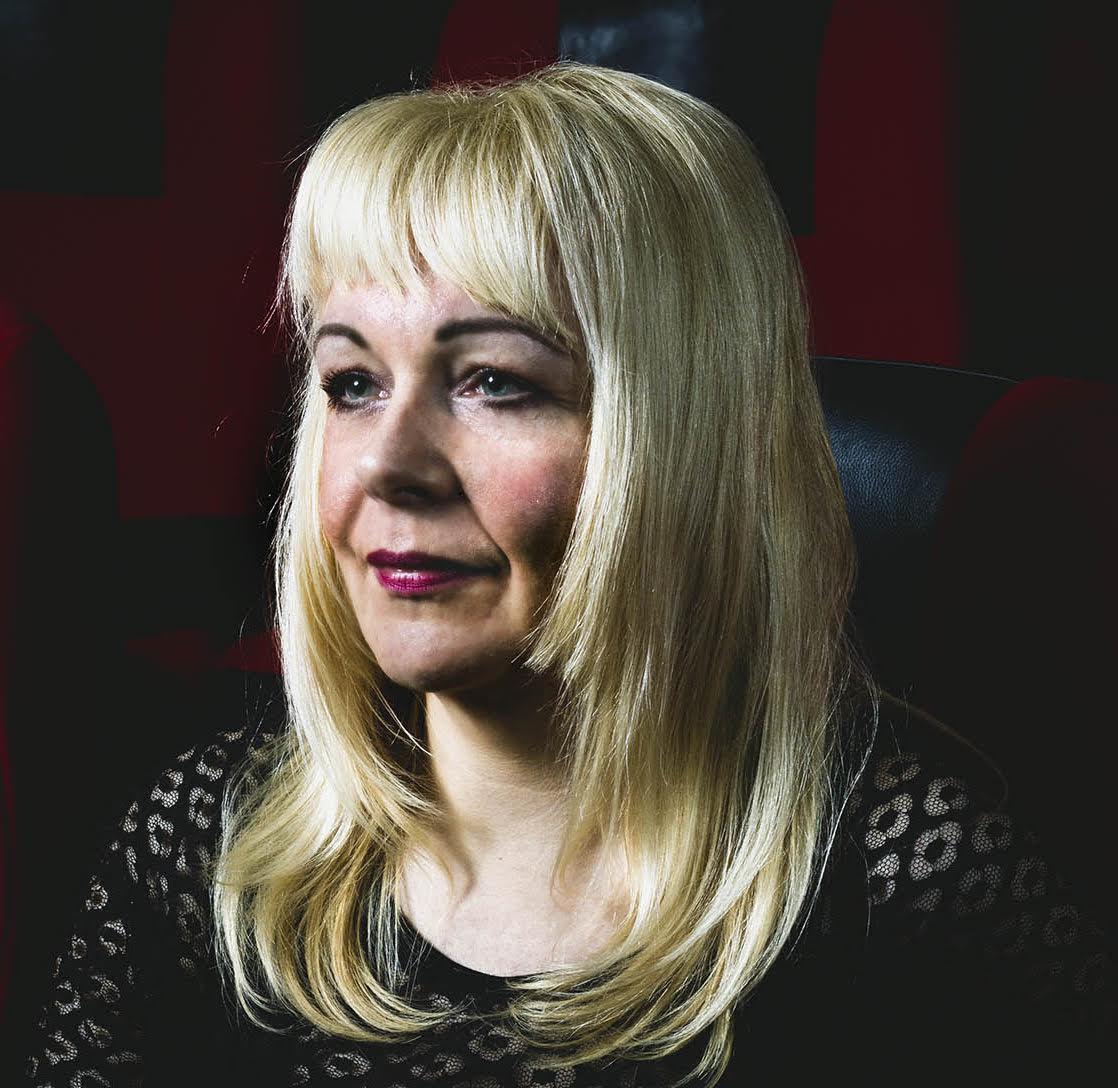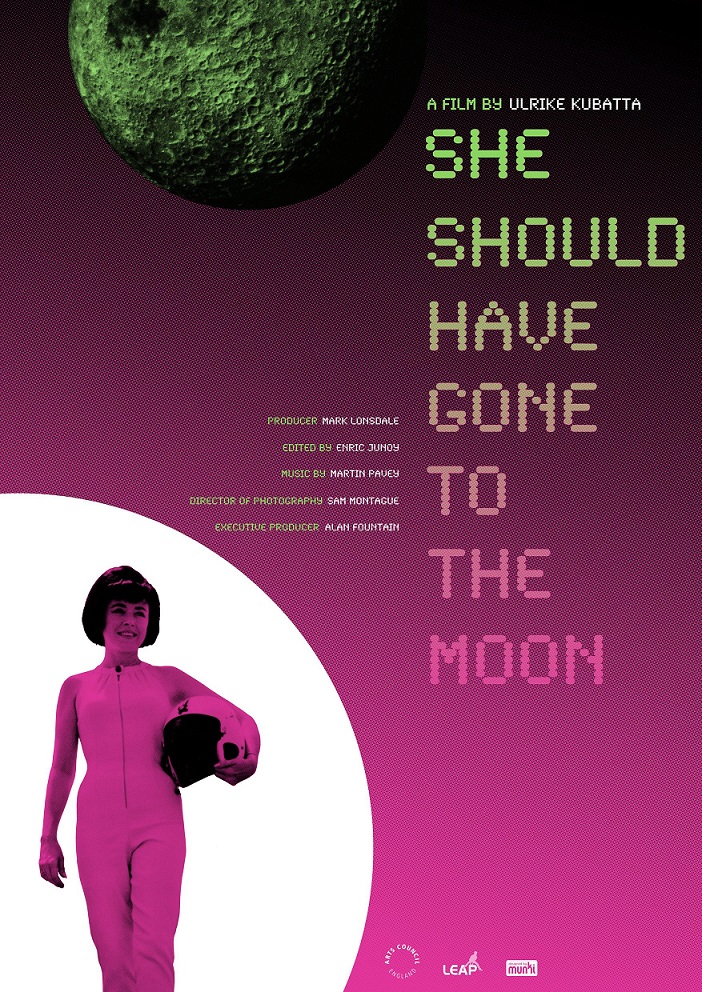As an award-winning documentary maker Ulrike Kubatta is always going to have a thing or two to teach a Film Studies class, but she says lecturing at De Montfort University (DMU) is her way of keeping creatively fresh – learning from her students.
Having carved out a successful career co-producing critically-acclaimed films like Credible Likeable Superstar Role Model and She Should Have Gone to the Moon, Ulrike brings a wealth of practical expertise to her role as Senior Lecturer in Film and Media Practice at DMU.

But she said she was drawn to teaching for the exchange of ideas she has with her students.
“Teaching is always something that I enjoy because I see the students as film-makers already,” she explained.
“I see it as an exchange rather than me just standing there and presenting knowledge. It’s very much about exchanging ideas and growing ideas. Working with the younger generation forces me to keep up-to-date and not become stagnant in my approaches. It helps me to keep up with the industry.”
Ulrike, who is originally from Germany, has combined teaching with a successful career in the film industry for many years and has previously led undergraduate and postgraduate courses at the likes of University of Hertfordshire, University Campus Suffolk, American Intercontinental University (now Regent’s College).
Meanwhile her career outside of academia has seen her make several successful films. She co-produced a feature documentary called Credible Likeable Superstar Role Model that won a number of awards and then made a film called She Should Have Gone to the Moon which was also very successful and screened at several festivals before having a short run at the cinema.
She is now working on a feature film documentary called Every Boy Wants a Toy Gun that will be released in April next year.
Film Studies is a course that requires hands-on skills to be constantly practiced and Ulrike therefore sees her academic and film-making careers as working side-by-side.
She said: “I make feature documentaries and in the past I’ve had students work on my films. It gives them good experience as well. I have a very strong industry background and as a film-maker I’m constantly involved with it.
“I think my strength is that I come in with a lot of practical film-making knowledge. It’s not something that I’ve read in books and have no practical experience of.”
Ulrike initially came from an experimental film-making background. She studied at Central St Martin’s in London where she worked with 16mm film, which was then regarded as an artistic medium similar to painting or sculpting.
She then did a Master’s degree in Chicago at the School of the Art Institute which she says ‘turned her world upside down in a good way’.
She said: “I’ve always been very curious and I like to find out about people. Rather than writing fiction I was always drawn to documentaries and I find that it is one of the most creative genres to work with.
“With my work I’m really interested in people that have either done something extraordinary or people who evolve their identities to turn themselves into heroes or heroines. I kind of live my life through them and they are my own heroes or heroines.
“I like immersing myself into other people’s worlds. At one point I was a roller derby player and I went to San Francisco and skated with the Bay City Bombers; that’s what I mean about living an experience through making the film. But it’s not a self-indulgent practice, I know I’m saying something important outside of that.”
RELATED NEWS:
UK Asian Film Festival returns to Leicester
Film historian hosts event looking at women's poor treatment in Hollywood
From intern to employee: Jordan proves he has what it takes to work in the film industry
Ulrike also views research as an important part of her role at DMU but insists that it doesn’t need to be research in the traditional sense.
“I’m not a traditional researcher, my research is practice-based,” she explained.
“I’ve started to contribute to journals about my work and I’m starting a PhD by publication which is something still quite new where your published work, in my case films, act as a base to write a thesis on. My thesis is all about the idea of transformation and identity through documentary story-telling.
“I’ve always engaged in a form of research through my work but as universities and education are evolving, particularly in film and media-related subjects, it’s important to be practice-based and build a framework in an academic sense around that.”

She Should Have Gone To The Moon will be shown at Leicester Phoenix Cinema on 15 November
Ulrike is passionate about developing the film industry and has set up the DocHub@DMU so that students, academics, researchers and industry professionals can come together to contribute to the evolution of the documentary genre.
She said: “Out of the Doc Hub we will grow a Master’s degree in documentary-making and the goal is to eventually use it to produce documentaries.
“Doc Hub will present a screening series in partnership with DMUlocal, which will be open to the public as well as students.
“I’m hoping that the Doc Hub will become a centre for making impactful films and helping students to pursue a career in documentary film-making, so it’s also about mentoring students.
“I am particularly interested in documentaries that have an impact and see themselves as tools for change. It’s not just about a screening in the cinema that people enjoy and then go home, but it’s about the film and its impact post-screening.”
In recent times the spotlight has been on the film-industry for the wrong reasons with accusations of sexism and misconduct coming to light. Ulrike is keen to do her part to address these issues.
“As a woman, a film-maker and an academic I have to be passionate about gender equality.
“Now is the time to take action and change things. I’ve always been an active feminist and I want to make a contribution to society. I think that’s important for every individual and this institution gives me the opportunity to do that.
“The Doc Hub will help to address those issues. It’s a forum to bring people together that wouldn’t normally sit in one room to talk and see what they can realistically do.
“Even if it’s just a small shift in people’s thinking, that’s what I try to do with my films. If one audience member walks out afterwards and has a shift in perspective then that’s already a big achievement.”
Ulrike has made a big impact in her short time at DMU and she is looking forward to making her mark.
“I really love my job my here,” she said. “I think I’ve found my creative home and it is very exciting.”
Posted on Friday 9 November 2018